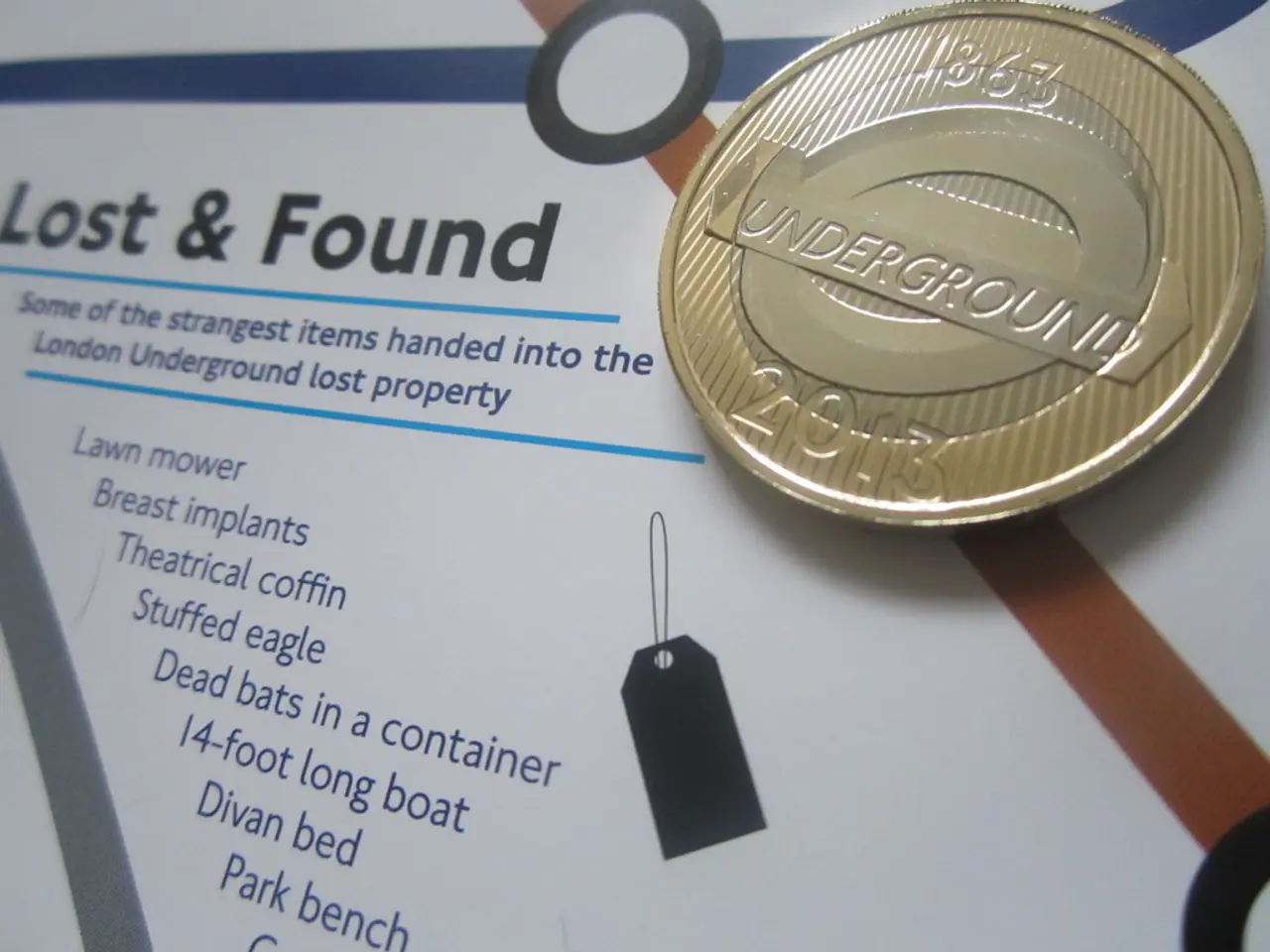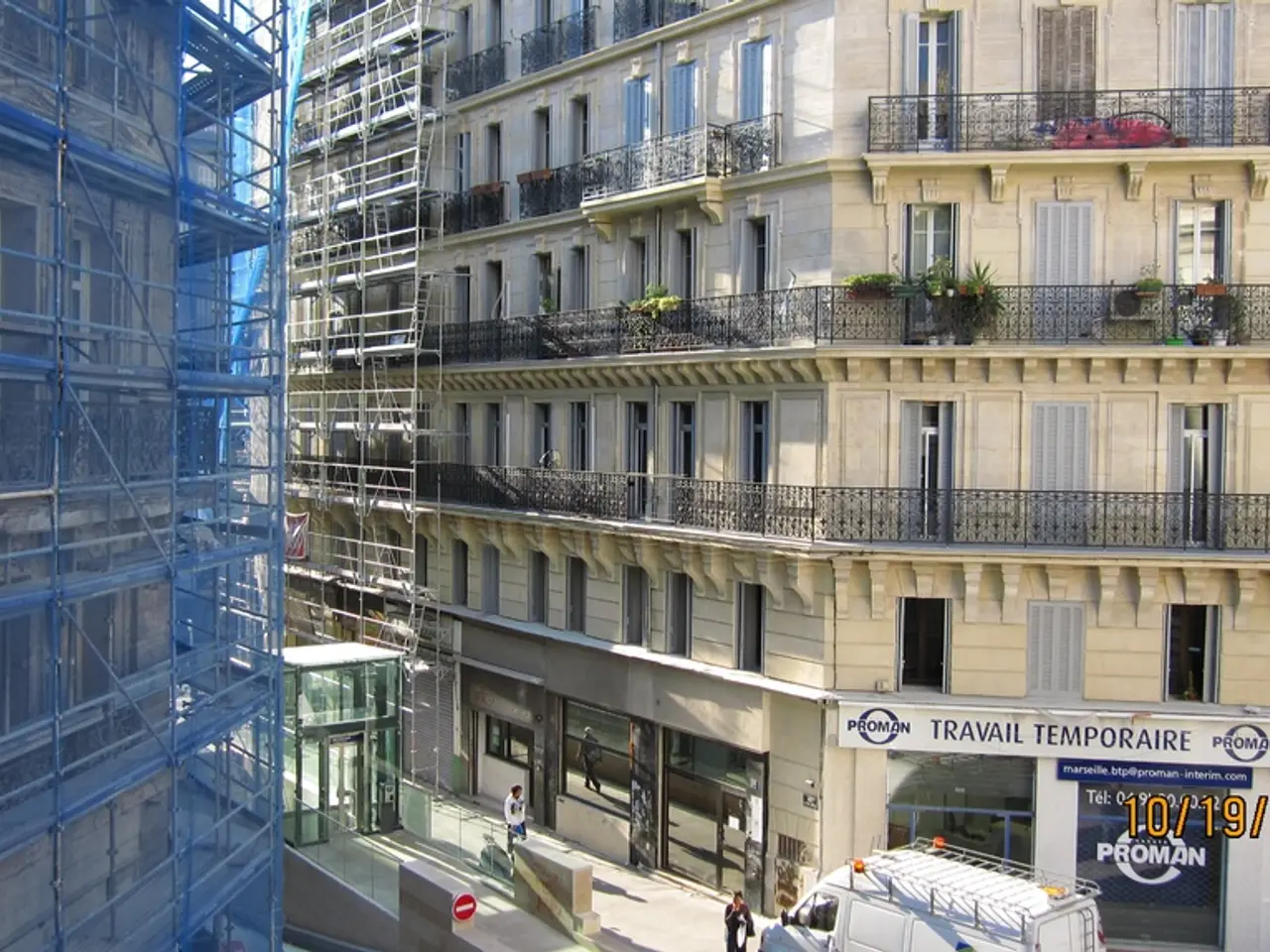Unleashing the Iron Giant: Bremen's SPD Crusade for German Steel Industries
Bremen's SPD advocates for safeguarding Germany's steel industry
Embrace the thundering rallying cry, folks! The Social Democrats of Bremen are gearing up to propose an action plan at the SPD federal conference, happening in Berlin today. The mission? To sustain the backbone of Germany's industrial prowess - the steel industry.
Share this message to your inbox
In this clenched fist of solidarity, the SPD state associations of Saarland, North Rhine-Westphalia, Lower Saxony, Brandenburg, and Bremen pledge their unwavering support. They're calling for the federal government to fortify the steel industry, easing the strain from deluging imports and bolstering its eco-friendly metamorphosis.
The ironfire spearheading this charge demands the prompt assembly of a steel summit, Masterminded by the Federal Ministry of Economics, urgently inviting all German steel mills and businesses for a collaborative dialogue. The proposed action plan also outlines the necessity for robust trade policies, shielding local industries from cutthroat dumping prices.
A Million Dollar Dilemma: ArcelorMittal Goes Dark on Green Steel
ArcelorMittal, the global titan of ironproduction, recently sent shockwaves rippling through the industry by declaring that they're abandoning their billion-euro investment in transforming the Bremen steelworks to produce green steel. Their reasoning? The current electricity prices in Germany, plus the lack of competitive hydrogen supply, are stymieing progress.
2,000 Workers March for Bremen's Steelwork's Future
More About Bremen's Steelworks:
The steel production sector, particularly the Bremen Steelworks, faces a daunting battleground crawling with economic hardships but also promising avenues of resilience.
A Mountain of Hurdles
1. Shattering Energy Expenses:Green steel production masses an unprecedented energy consumption, impinging on its financial viability. Despite juicy subsidies in tow, conglomerates like ArcelorMittal hesitate to commit to green hydrogen projects, owing to the disparity between current market conditions and the economically feasible alternatives[3][4][5].
2. The Iron Giant's Kryptonite: Imported SteelThe industry grapples with ruthless competition from cheaper steel-exporting nations, notably China, making it hard to establish footing in the global market. This pressure exacerbates the strain already induced by the costs of energy transition[2][3].
3. Fortress Europa's Maze:The shift from age-old fossil fuel-based steelmaking to climate-neutral hydrogen-based processes calls for overhauling the entire infrastructure, notably expanding the hydrogen network and ensuring a stable, affordable, and renewable electricity source[4]. The glacial pace of this development presents a substantial roadblock.
4. Jobs ‘R’ Us: A Fading Dream?Over the years, the industry has endured massive workforce reductions, reflecting embedded structural strife. More troubling is the uncertainty surrounding the real market potential for green steel, dampening investors' spirits and passion[2][3].
Fanning the Flame of Hope
1. The Power of Policy:Industry leaders and experts echo the urgent need for government intervention, such as slashing taxation on electricity to the European minimum, reducing grid fees, and committing long-term subsidies tied to measurable objectives. The government has proposed steps to ease energy burdens, but the success is contingent on swift implementation[2][4].
2. Armored with Trade Protection:A key demand voiced by the industry clamors for import caps, limiting foreign flat product imports to protect local industries while fostering the growth of greener technologies[3].
3. Steel Magnolias: A Beacon of FortitudeAlthough ArcelorMittal stepped back from the production fray, Thyssenkrupp soldiers on, investing €3.5 billion in a groundbreaking green steel plant in Duisburg. A bold stride like this could pave the way for further investment[4].
4. Fuel for the Fire:Accelerating the hydrogen infrastructure, ensuring the availability of affordable, renewable electricity, and bolstering the grid is crucial. A joint effort between government and industry would help circumvent bottlenecks and mobilize green steel production[4].
- Radio Bremen could discuss the current challenges facing the steel industry, such as soaring energy expenses and intense competition from cheap steel exporters like China, in their general news programming.
- In the realm of politics and policy-and-legislation, the SPD's action plan for the steel industry could include measures like reducing taxation on electricity for local electricity-intensive industries, import caps to protect local industries, and long-term subsidies tied to achievable objectives.
- The financial implications of the steel industry's green transition could be a topic of interest for investors and financial analysts, especially in light of ArcelorMittal's decision to halt their billion-euro green steel project in Bremen. These discussions could highlight the potential for robust, eco-friendly steel mills and businesses, like Thyssenkrupp's new green steel plant in Duisburg, to foster growth and investment in Germany's industry and economy.




